項目為一幢由老屋改造的咖啡館,Studio Studio團隊在以建筑保護為前提的情況下,為其進行了一次“將不同時代感融合在一處空間”的新嘗試,為此,如何在項目中重新構建新建筑和舊屋頂之間的關系也顯得尤為關鍵。
This project is to turn an old house into a cafe. The relationship between the new build and the old roof was important. It was not a matter of preservation, but rather a matter of the simple fact that ‘different times meet.’
▼項目概覽,General view of the project ? 
舊屋改造的案例在今天不勝枚舉,與日本一樣,首爾的許多住宅如今也被改造成商業空間。而對設計團隊而言,在現有屋頂的基礎上,如何將具有年代感的屋頂與新建的墻體完美融合在一處空間內則成為了至關重要的挑戰。為此,團隊放棄采用復古、新復古風格或復刻等設計手法,保留具有年代感的屋檐結構,并在此基礎上融入大量現代元素。
There are so many examples of renovating old houses. In addition to home renovations in Japan, many houses in Seoul are now being transformed into commercial spaces.What was important to me was the complete separation of the 1980s and 2020s by the roof and walls. The roof has already been completed, so I thought that newly created things should be extremely current. The ray of time does not come down under the roof. I didn’t want the project to take over the roof history with words like retro or new retro or reprint.
▼屋檐下的咖啡空間內景,
Arrangement of the project under the historic roof ? 
形式上需求具有品味,但在首爾現有的咖啡店領域,如何打造獨具一格的特色又是目前面臨的一大挑戰。正如此前提及,首爾的住宅改造項目眾多,其中大部分都以復刻或復古為主,或是完全忽略了建筑的歷史性,因此,設計團隊希望通過留存這座建筑歷史的同時為其注入新的生命力。
There are tastes in the purpose of the form, but the problem of characteristics is bigger in that the project has to be located in the current field of Seoul. As mentioned earlier, there are numerous home renovation projects in Seoul, and most of them are focused on reproduction or retro. Or they completely ignore the microhistory of the building from today’s point of view. I am not criticizing these two attitudes as wrong. But at least I am simply acknowledging the existence of the building’s history.
▼由入口望向室內空間,
View from the entrance to the inside ? 
▼從室內望向入口處,
View from the inside to the entrance ? 
▼由操作臺望向座位區,
View from the operating area to the seating area ? 
▼座位區近景,Detailed view of the seating area ? 
在這里,顧客可以品嘗咖啡、閱讀,或是工作、與朋友聊天。可當設計團隊置身于原有空間時,總有一種身處于他人家里的束縛感;通過對此前nLDK團隊打造的墻結構重新調整,最終將這處原本連容納一人居住都稍顯吃力的小房間,一個全家人聚在一起看電視的客廳以及一間夫妻居住的臥室改造成與陌生人共享的新空間。
Here, users drink coffee, read a book occasionally, tap their laptop like I do now, and chat with their friends. And users have to share that space with others. From that point of view, the wall structure nLDK plan is really difficult.A small room where one person can barely sleep, a living room where the family gathers to watch TV, and a couple’s bedroom must be transformed into a space that must be shared with strangers. When I see this new act being performed on the scale of an existing house, uncomfortable feelings come to mind in my body. Maybe it’s because I feel like I’m lying in someone else’s house?
▼由室內望向內部小空間,
View from the indoor to the smaller room ? 
▼由室內窗戶望向室外,
View from the window to the outside ? 
但是,方案中無法移除所有的墻體,為了避免格局看起來似曾相識,團隊將少數結構進行加固,大部分墻面重新維護,同時在中心墻面設計了一處大約300毫米的延伸墻。
However, it was not possible to remove all the walls. Minimal structural reinforcement had to be made and most of the walls had to be maintained. After that, I made an extension wall about 300mm on the center wall. This is to avoid looking like a familiar plan. I’m not really sure how effective this intervention was.
▼進行維護加固的墻體以及延伸墻,
The reinforcement & maintained wall and extension wall ? 
▼置物區,The storage area ? 
雖然團隊操作前也無法確定是否有效,但呈現結果的確將這個空間變得不那么“溫馨”;此外,還選擇犧牲了原有的“寬敞”,通過對空間的干預將原有面積縮小了近70平方米。過程中,雖然也經歷了設計上可能無法完全克服或完全解決的問題,但至少有部分問題最終得以解決,在某種程度上,成果還是令人滿意。
Nevertheless, I feel that this space has become less ‘homey’. On some days, design may not be able to fully overcome or completely solve it. However, it is satisfactory to some extent that certain problems have been resolved a little. Aggressive intervention would have narrowed the 70 square meter space. I had to decide between ‘removing the atmosphere of the house’ and ‘spacious’, and I chose second.
▼屋頂結構,The roof ?Park Sehee
▼改造前平面圖,Plan before renovation ?Studio Studio
▼改造后平面圖,Plan after renovation ?Studio Studio
Interior & Furniture Design : Studio Studio
Site Area : 140 m2
Built Area : 70 m2
Project Location: Incheon, South korea
Program: Cafe
Client : Lantern
更多相關內容推薦


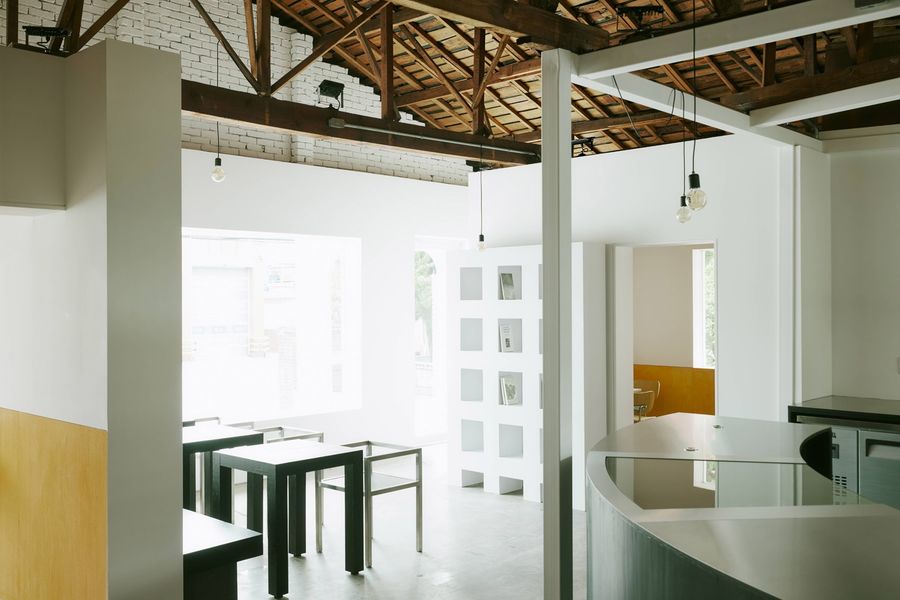
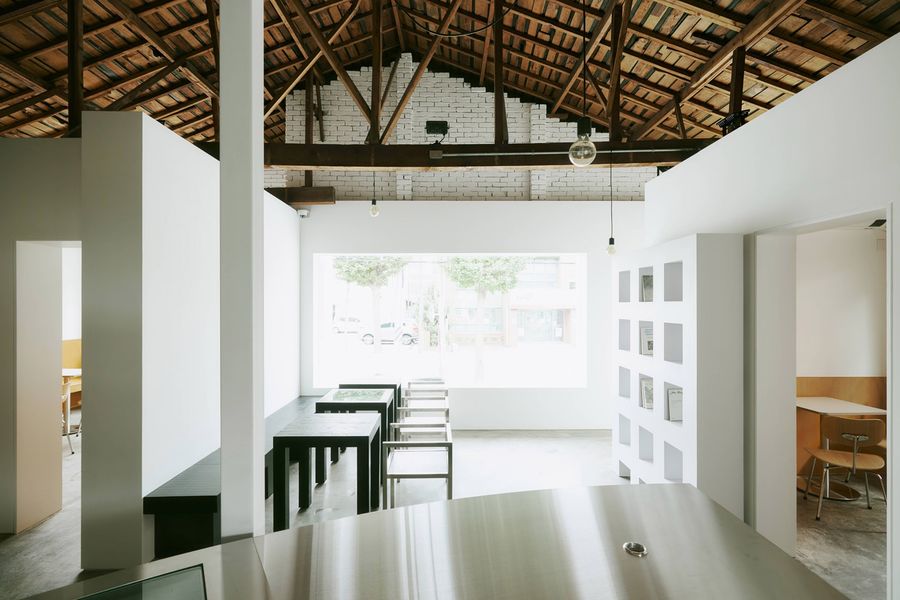
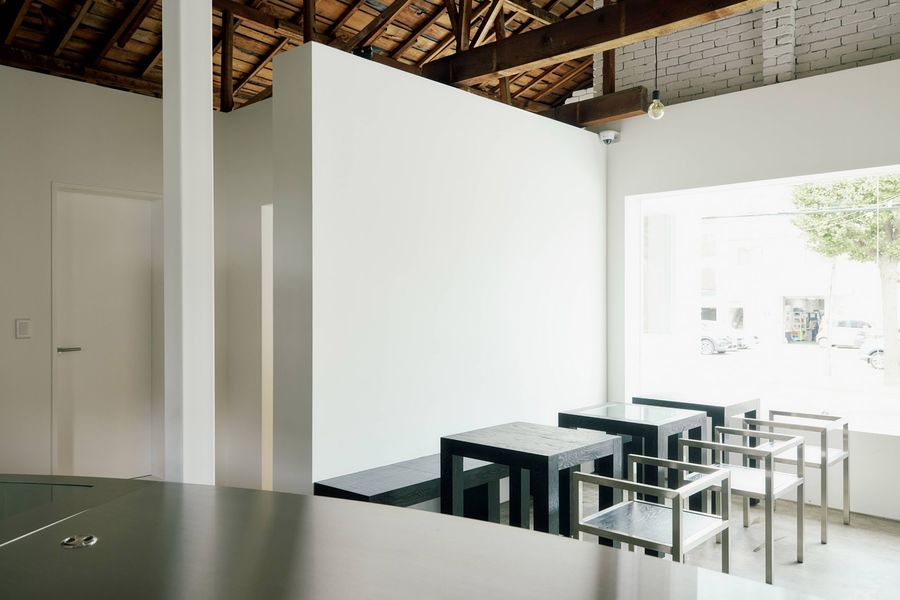
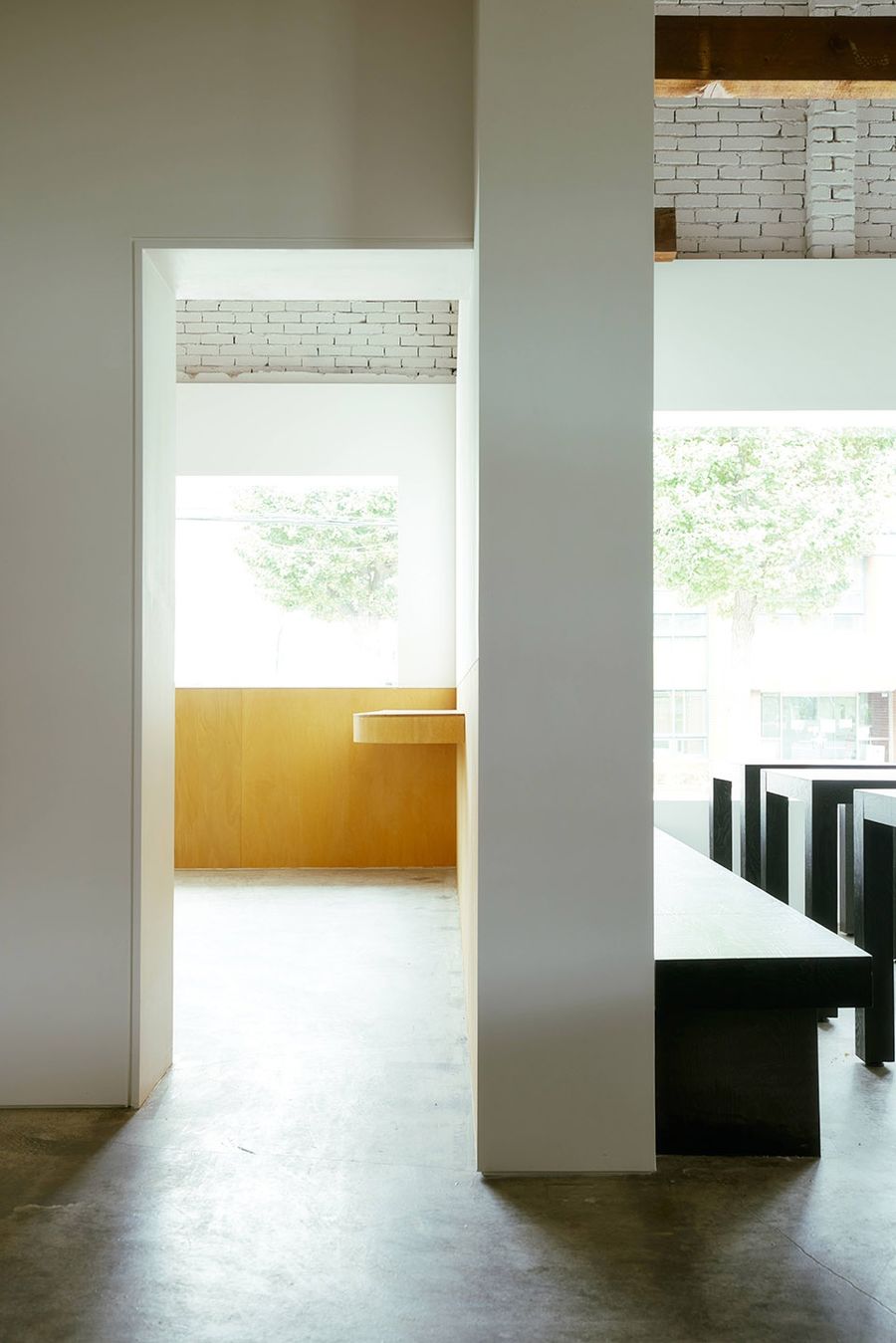
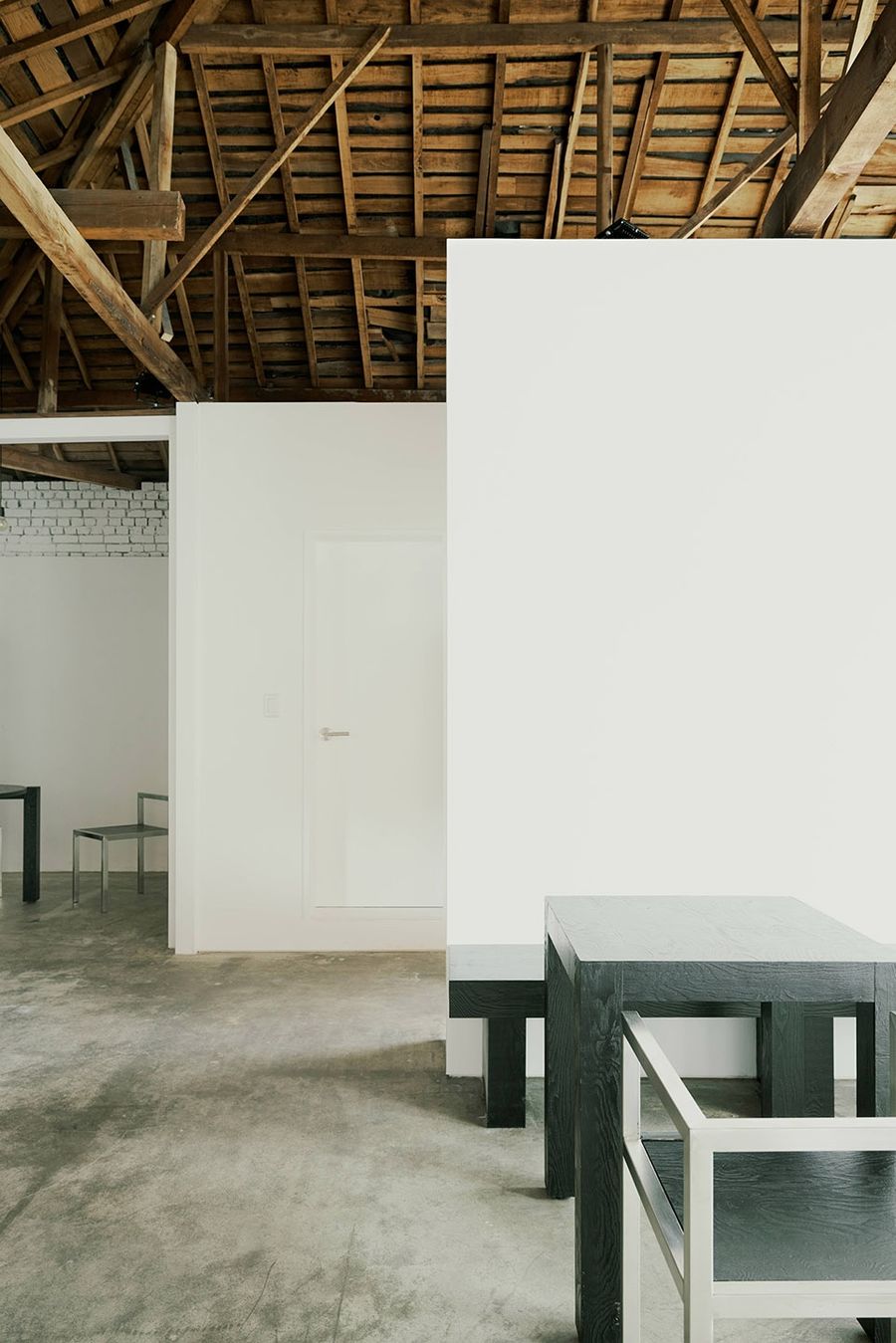
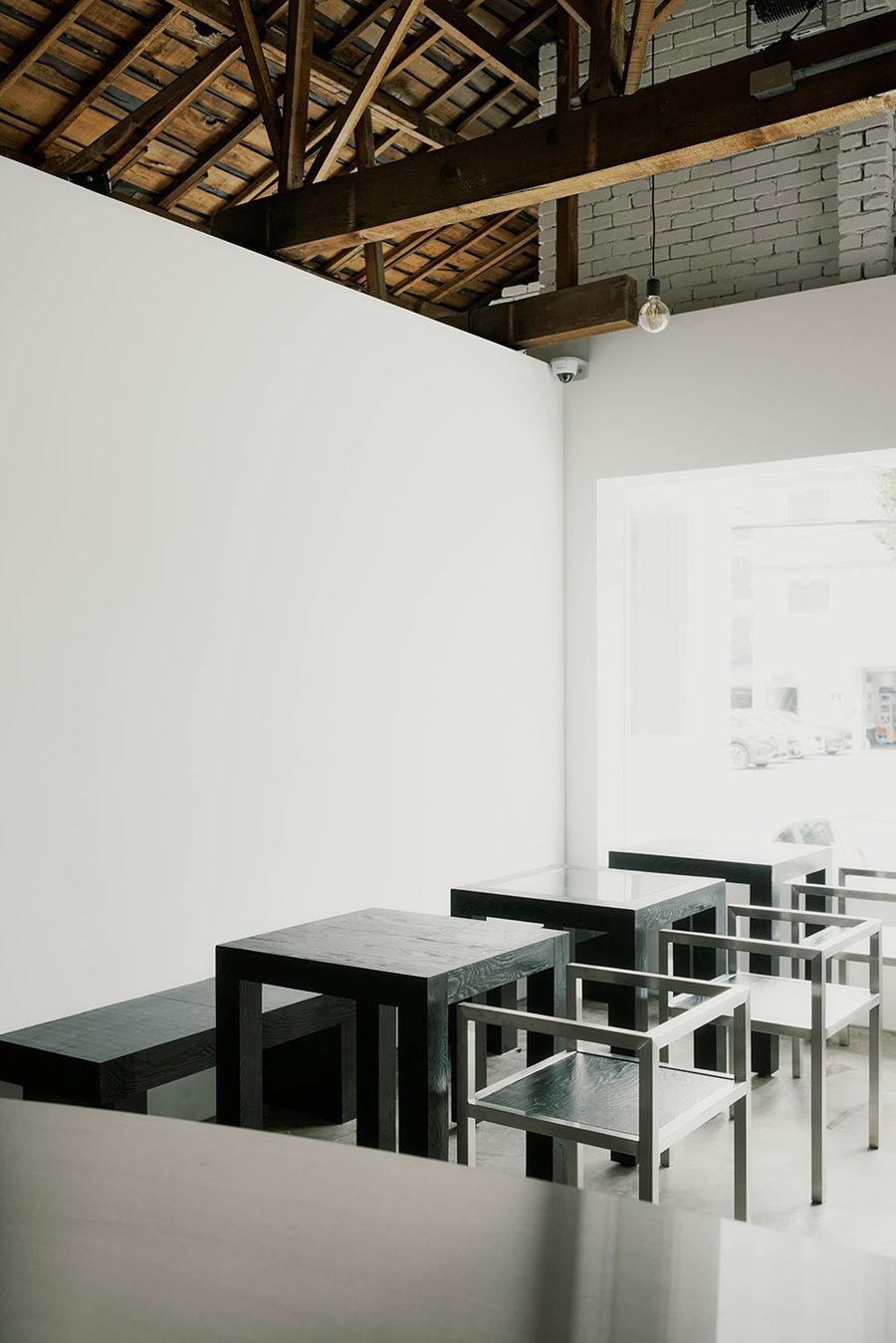
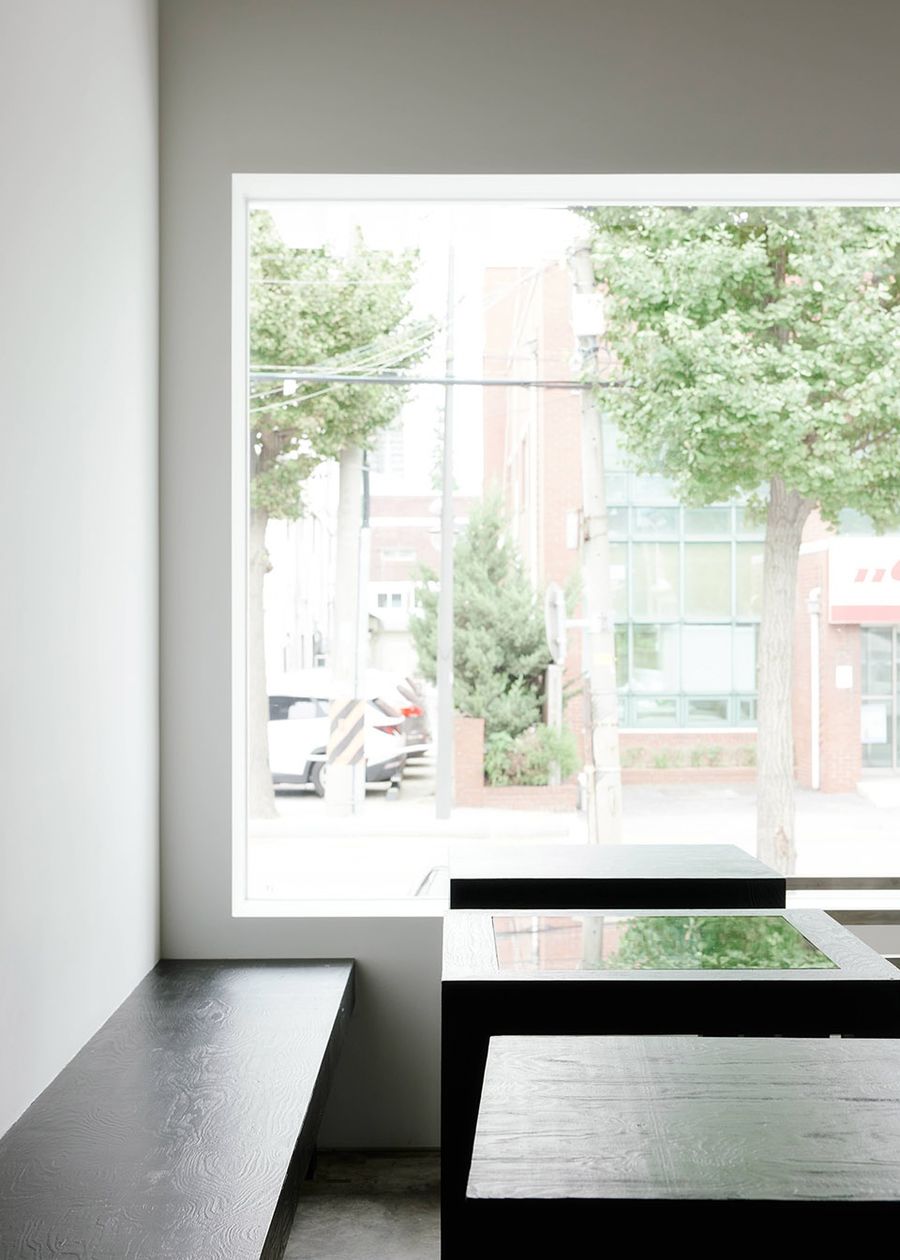
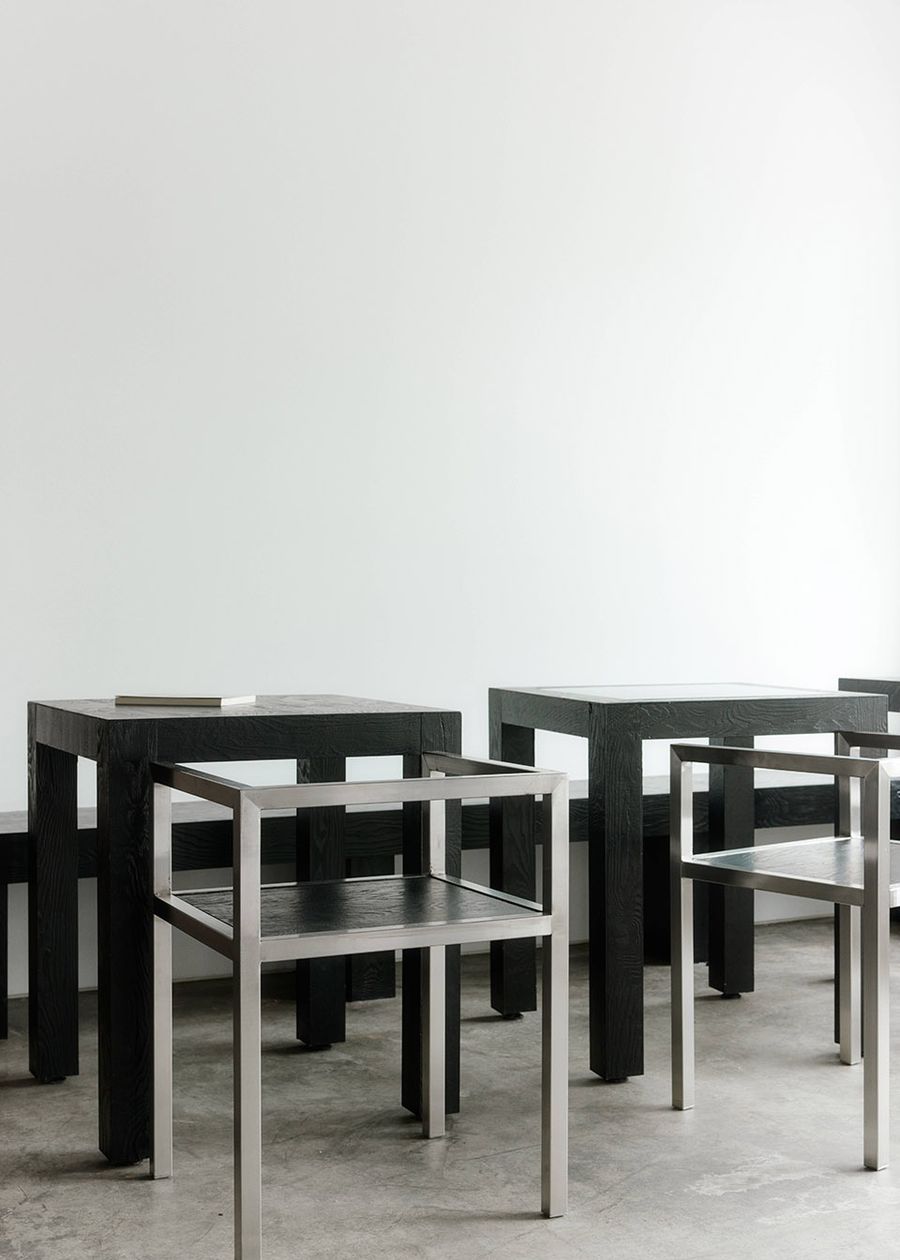
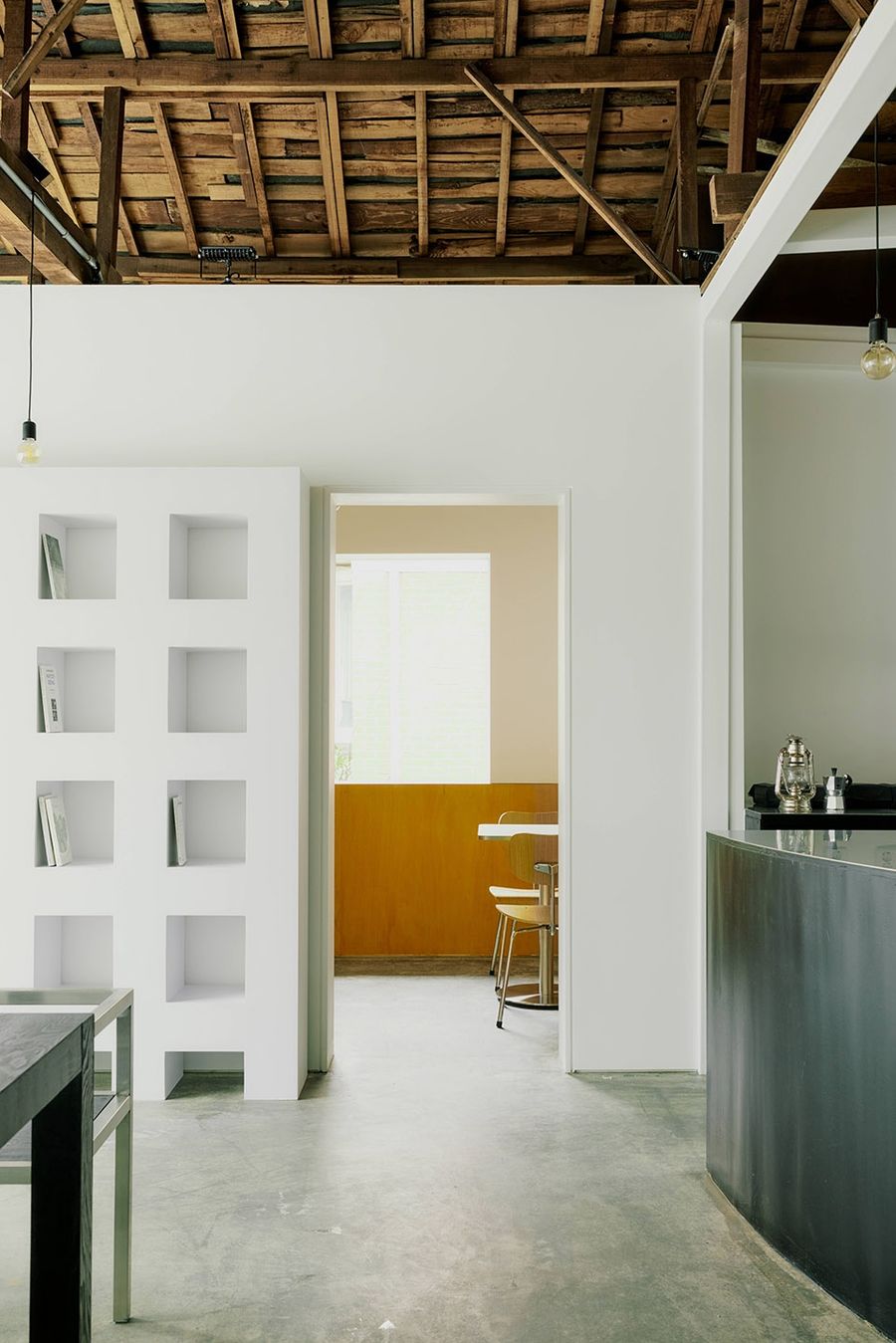
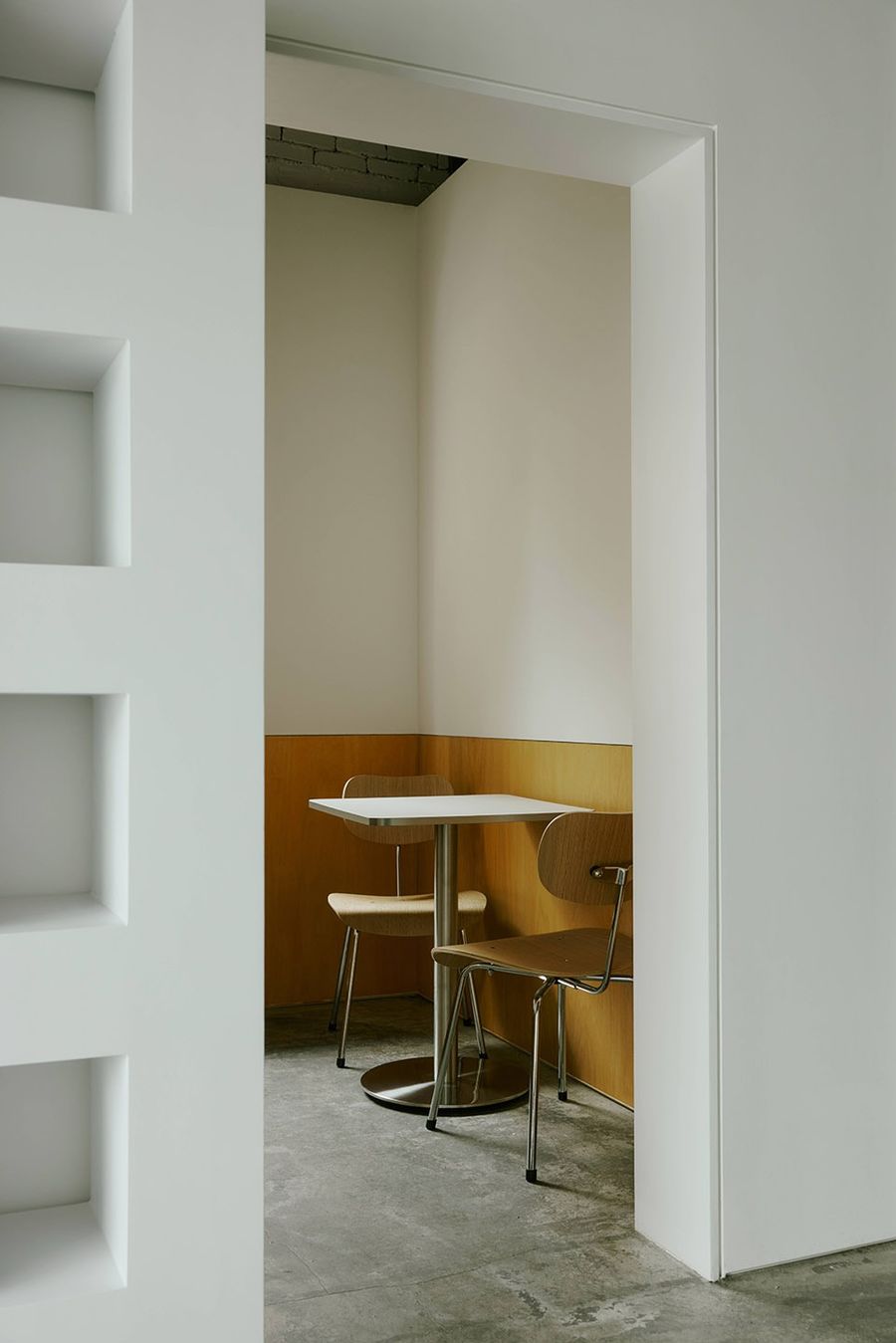
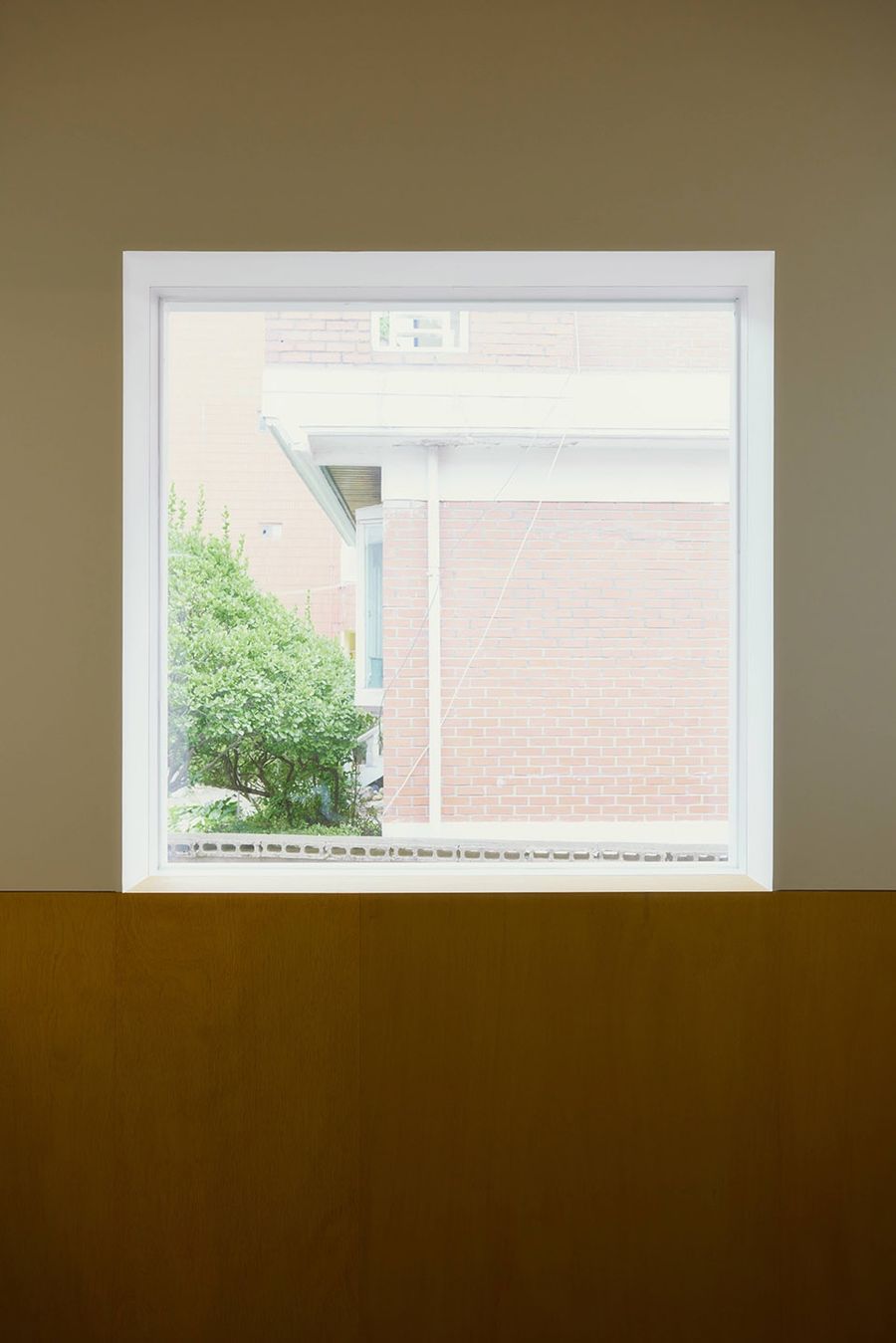
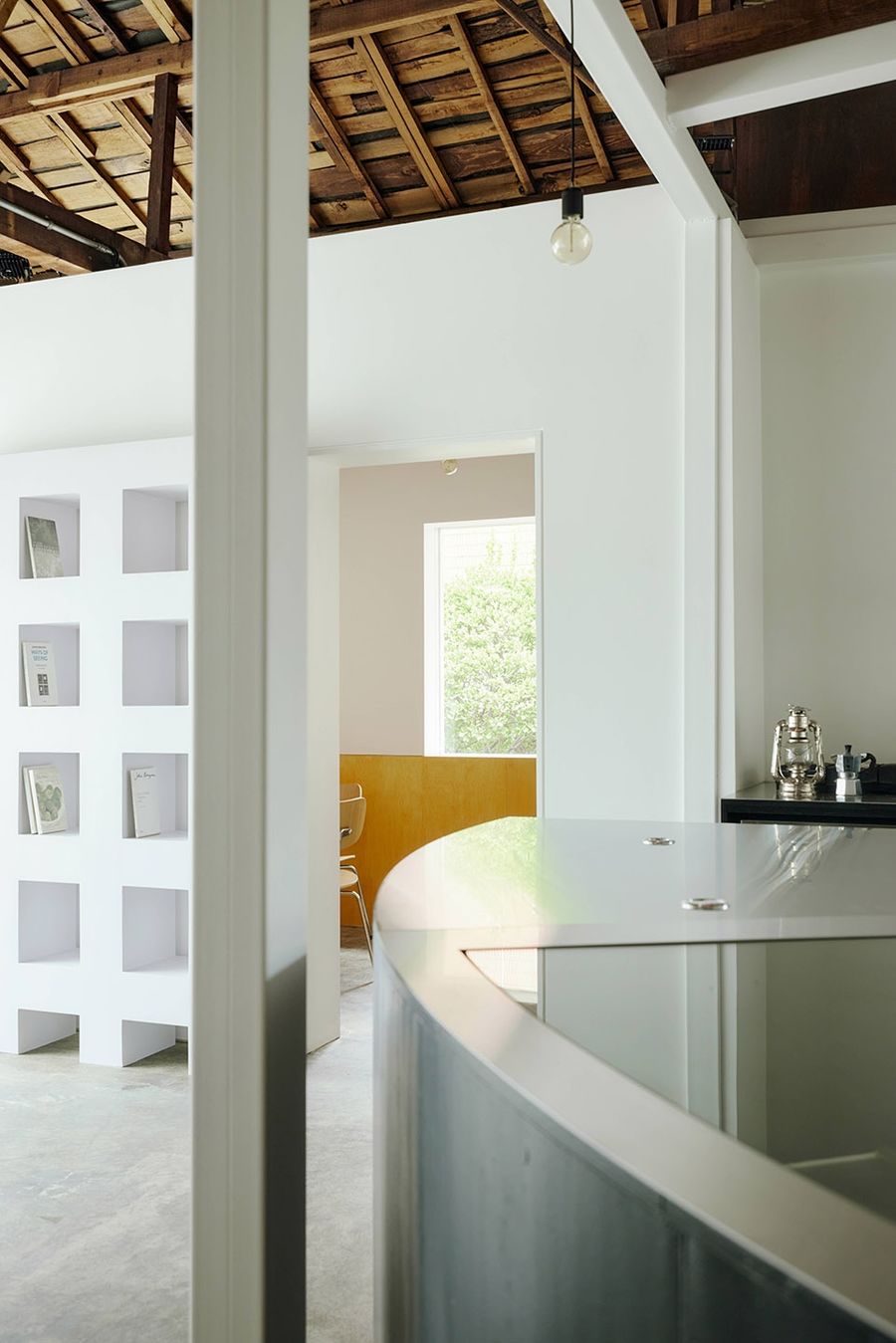
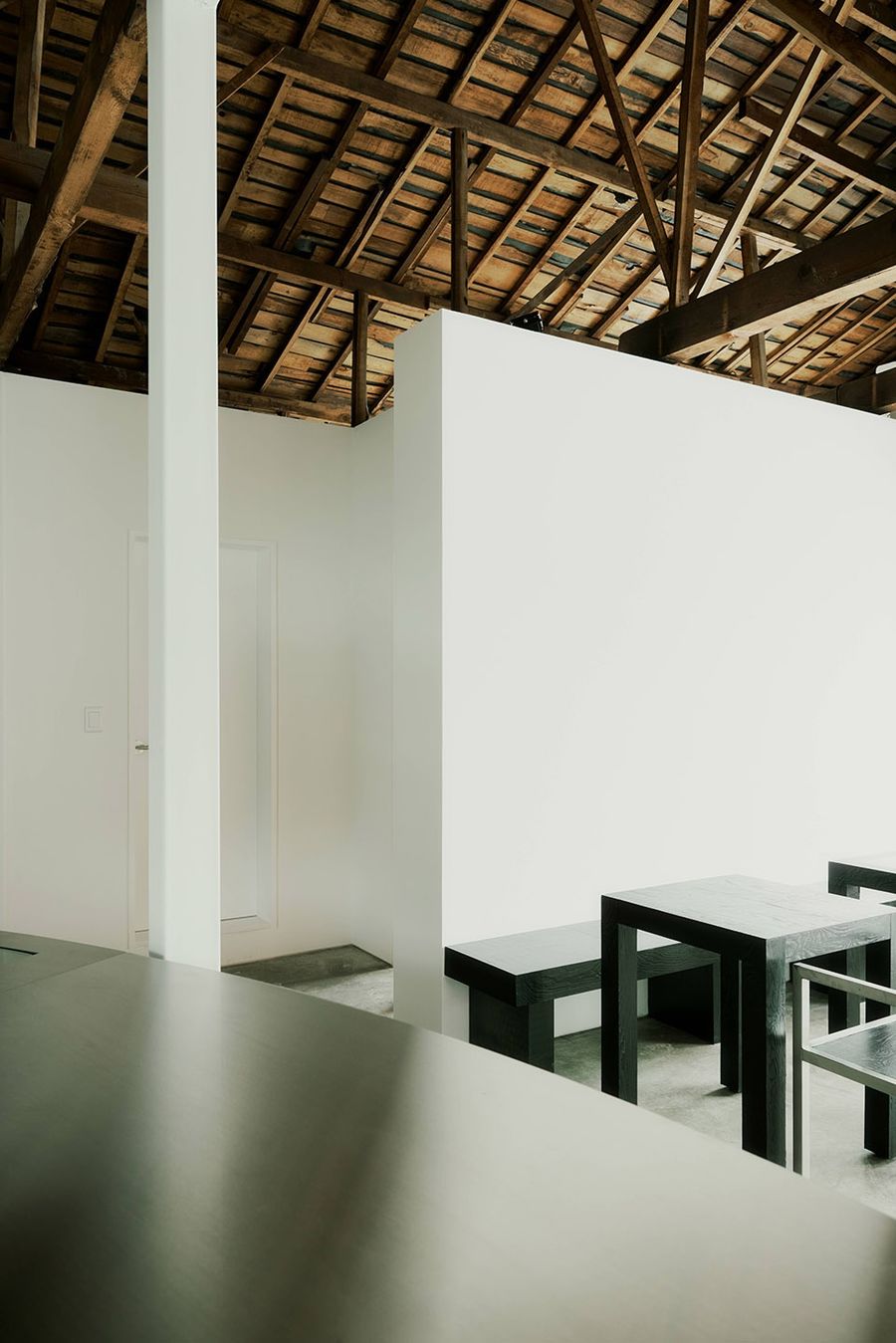
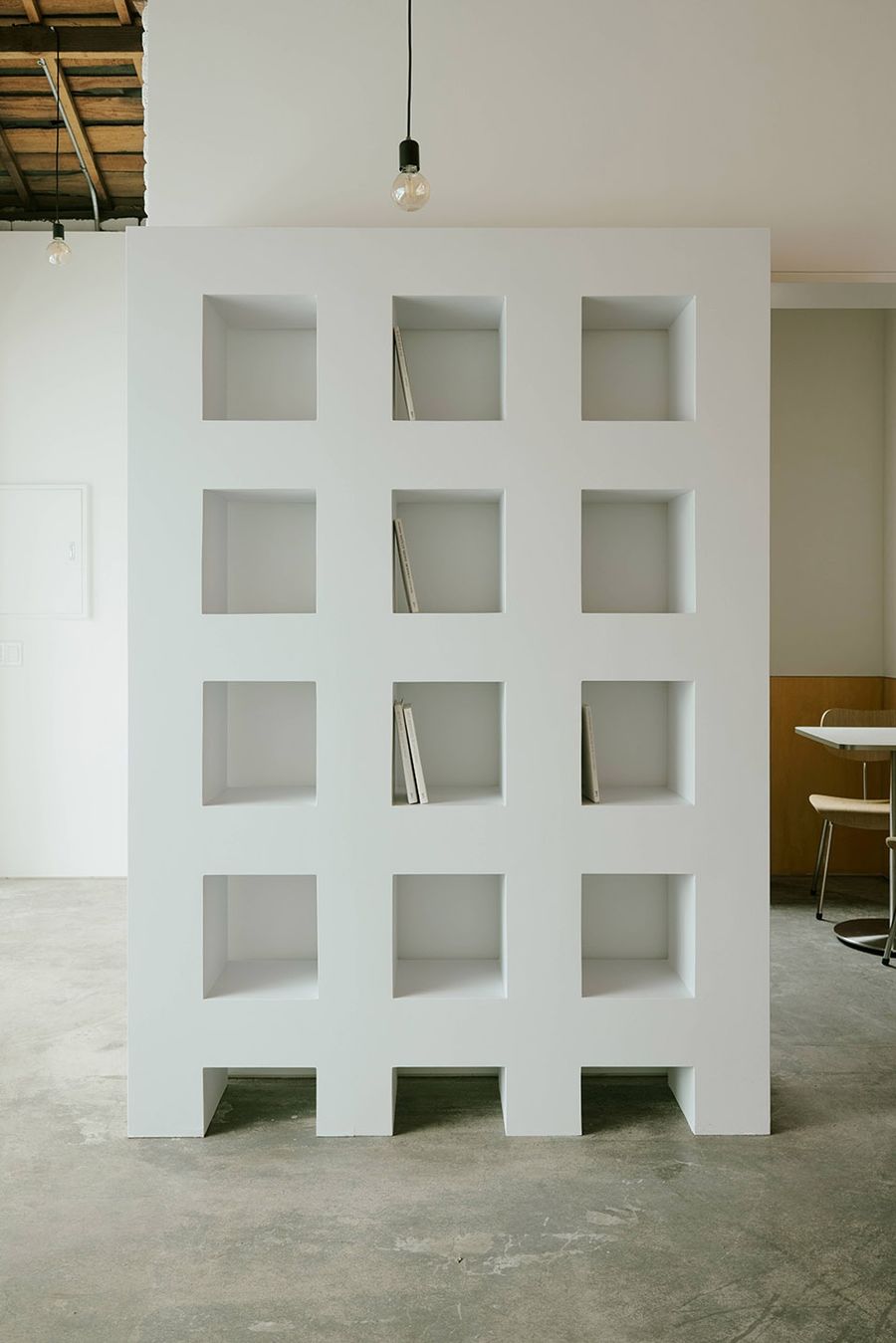
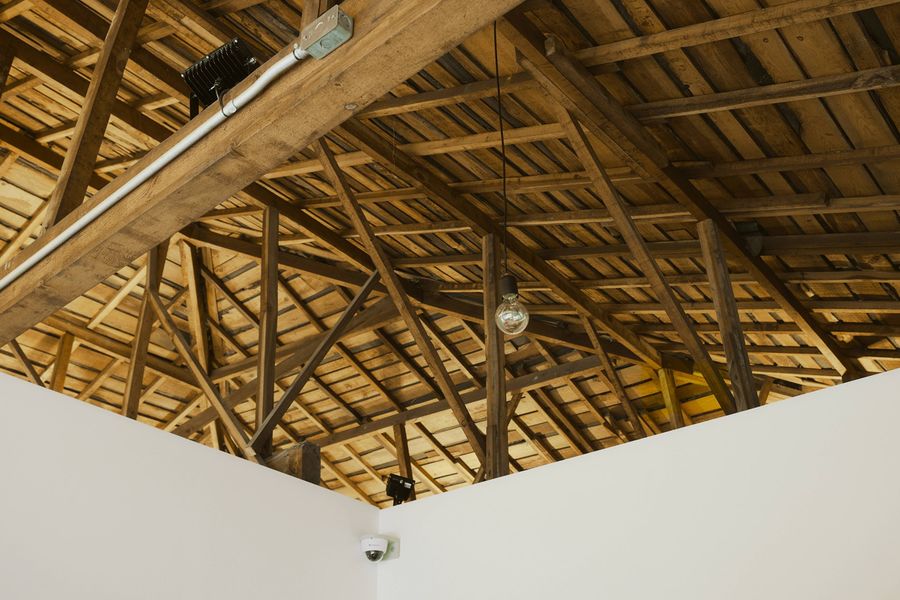
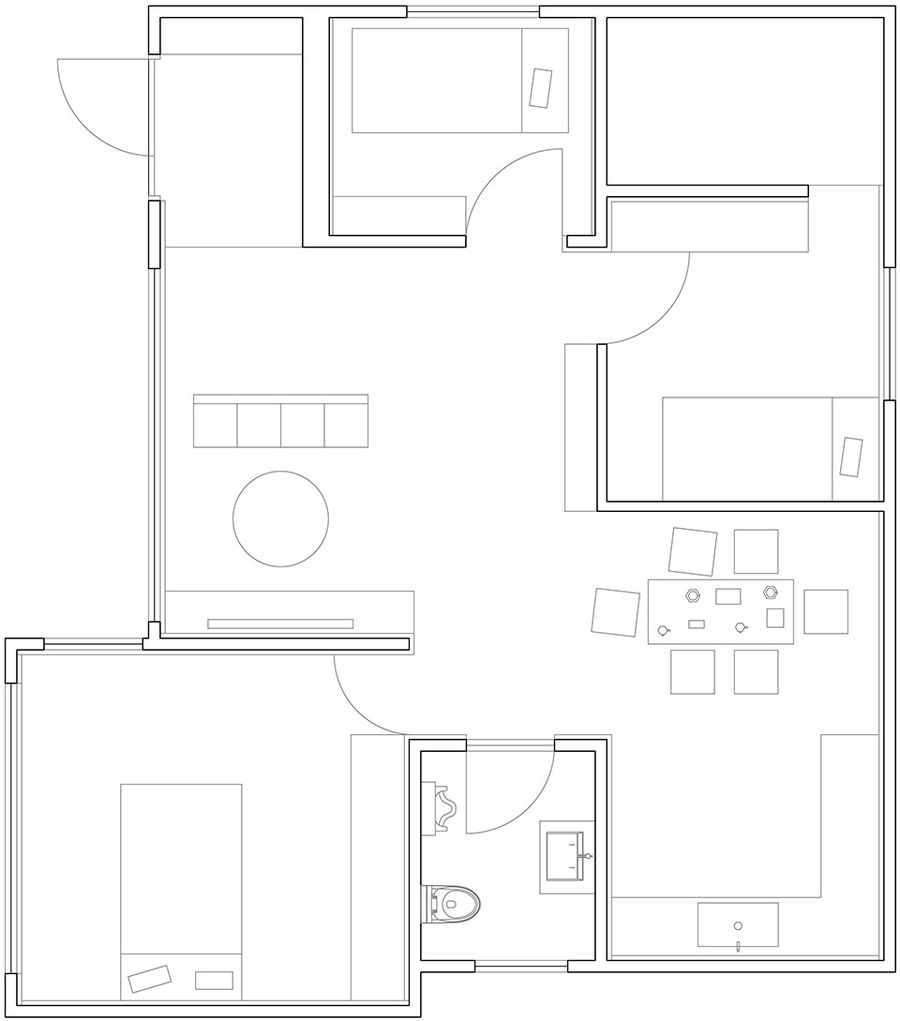
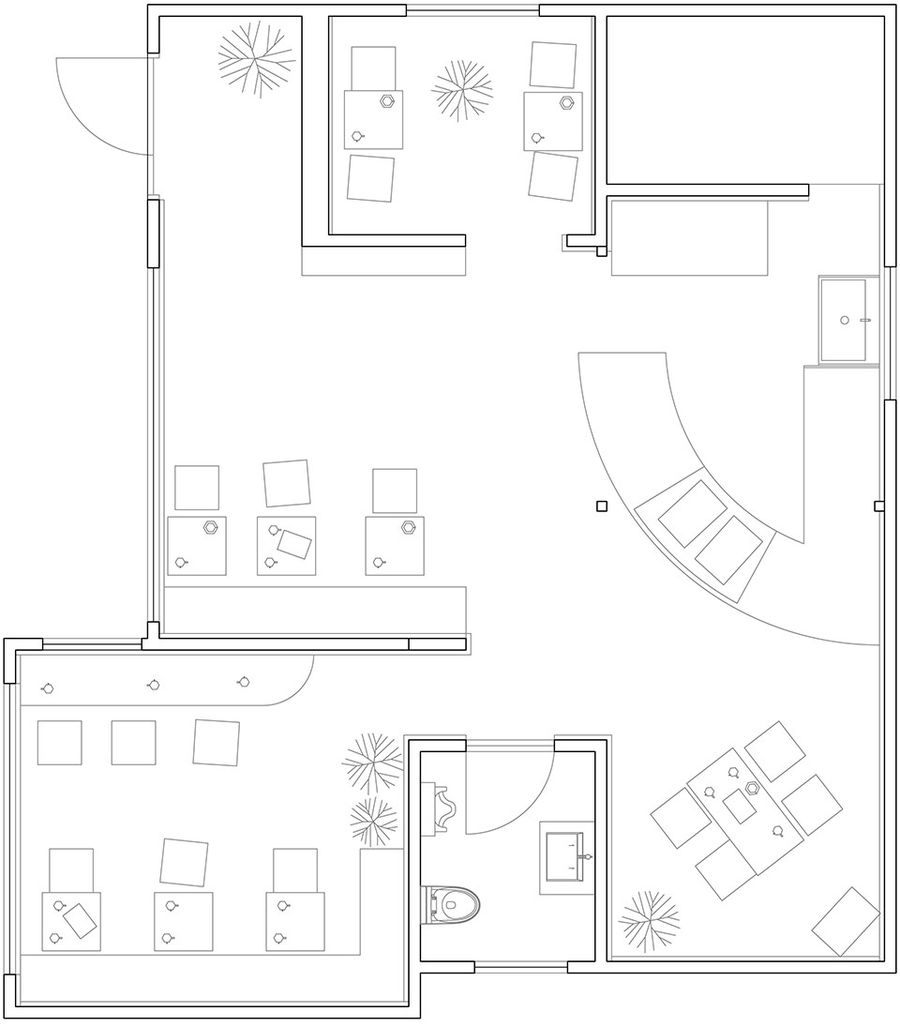











評論(0)